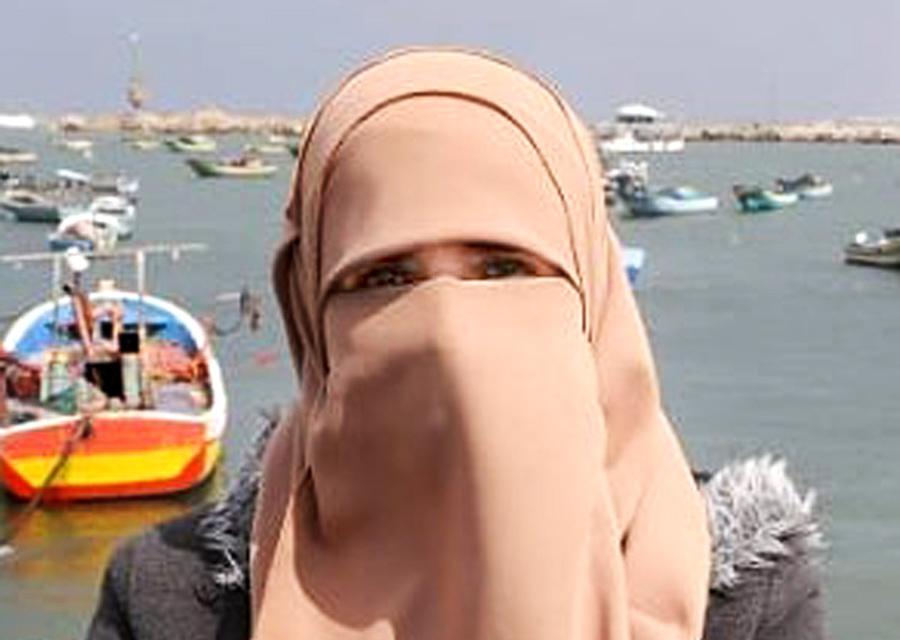BY WAFAA A. ALUDAINI
Being a journalist in Palestine means you have a story every day of oppression and brutality due to the occupation. In stark contrast, you also have stories of resilience and steadfastness by vulnerable people of Gaza.
I have covered every type of Israeli aggression on the besieged Gaza strip, with regular scenes of border closures, empty streets, closed schools, universities, restaurants and wedding halls, along with bans on public gatherings.
Since the Gaza ministry of health recently announced the first two cases of coronavirus, however, I’ve gone outside in fear for the first time. But it’s not about me being killed at my job, it’s about potentially bringing death home to my loved ones. Driving through the streets now I experience similar difficult circumstances only this time without hearing bombing everywhere and Israeli drones buzzing over my head.
Mohammed Kareem, 30, a Palestinian activist and translator, commented on similarities between Gaza presently and the outside world: “Finally the world has a chance to feel what we have always felt, under decades of occupation and siege,” he said. “We launched millions of social media campaigns and other activities to shed light on how the Palestinians suffer under the Israeli siege, but nobody acts and nothing works to break the blockade on Gaza.”
Palestinians in the Gaza strip have experienced draconian lockdown measures ever since the 1980s when Israeli occupation forces imposed curfews and closed off towns and villages. Thousands have died, lost their jobs and educational opportunities due to these measures. Among the victims is my brother who was only 2 1/2 years old when he was out with my eldest sister to buy milk when the occupation forces suddenly imposed curfew. They quickly ran home and while being chased, my little brother fell on a rock, hit his head and caused permanent mental handicap.
In 2005, Israeli forces withdrew from the Gaza strip but kept controlling the crossings and turned the region into an open air prison. In 2006, after the Palestinian legislative council election brought the Hamas movement to power, Israel imposed unending land, sea and air blockades on the entire coastal enclave.
At least three major Israeli aggressions have followed on Palestinian civilians in Gaza. These military actions on densely packed civilians have resulted in killing thousands and injuring tens of thousands more.
Ongoing Israeli aggressions make Gaza one of the most isolated and abandoned territories in the world, probably the major reason for the delayed outbreak of the coronavirus to date.
“The high population density and limited health facilities will result in frightening consequences of coronavirus in besieged Gaza,” the local UN humanitarian coordinator stated. The health system is fragile and lacks the equipment to adequately test for the coronavirus.
Gaza’s ministry of health said in a statement on May 14 that 19 people returning from overseas tested positive for coronavirus. Currently only six remain in mandatory quarantine facilities. For the very few people who are allowed travel, everyone is prohibited from directly reentering Gaza and are placed in mandatory quarantine facilities upon arrival.
While roaming the streets, I met the elderly Haj Abu Ahmad Ali, 76, from Jabalya refugee camp. When I asked him why he was not home, he said ironically, “They asked us to stay home, and I say let me go home and I promise to stay home! But how can the 113,990 refugees living in my camp in Jabalya, which sits on 1.39 square kilometers (53 square miles) of land, stay physically distant from one another?”
Obviously, the crowded camps and the lack of health facilities are perfect conditions for the coronavirus to spread easily. The Gaza Strip is one of the most densely populated areas in the world, with more than 2.2 million Palestinians living on a territory of 363 square kilometers (140 square miles.).
As a result, many initiatives have been implemented by youth groups and organizations to create awareness on social isolation and coronavirus protection in the form of creative drawings on medical face masks, sand sculptures, cartoon illustrations, mural painting and roaming clowns.
“Some people act carefully and follow the protective measure, others act carelessly,” said Anas Alnather, who works as a clown. “So we walk around the camps and the cities to encourage the children to stay home for their own safety.”
The Palestinian artist Majdi Qraiq’ paints lovely and colorful shapes on face masks to encourage the people to wear them. “We distribute the masks for free. We need to convince them that this is not Israeli bombing, but they should feel afraid of coronavirus not only for them but also for their loved ones.”
The government of Gaza itself has now imposed lockdown procedures, including closures of all universities, schools, kindergartens, mosques, restaurants and wedding halls, along with bans on all large public gatherings. Emptied schools are now serving as quarantine centers to help counter the pandemic from spreading.
Palestinians, especially those in the Gaza Strip, are used to living under harsh lockdowns. That’s why some things haven’t really changed much, and the people’s actions so far pass for what is considered normal here.
Gaza doesn’t have a commercial seaport or any airport. Israeli warplanes targeted the Gaza airport several times, the latest in 2006 when it was completely destroyed and leveled to the ground.
Even though the government’s measures appear to be working, and the coronavirus doesn’t seem to have spread widely in Gaza, the equally terrible impact of economic collapse has definitely reached all those living in the coastal enclave.
Wafaa A. AlUdaini is a Palestinian journalist who lives and works in Gaza City. Her work has appeared in Middle East Monitor, Palestine Chronical, Just World Educational, Palsolidarity and Samidon. She is manager of 16th October Youth Group. AlUdaini became acquainted with Peoria journalist Lawrence J. Maushard following his recent work in occupied Palestine.

